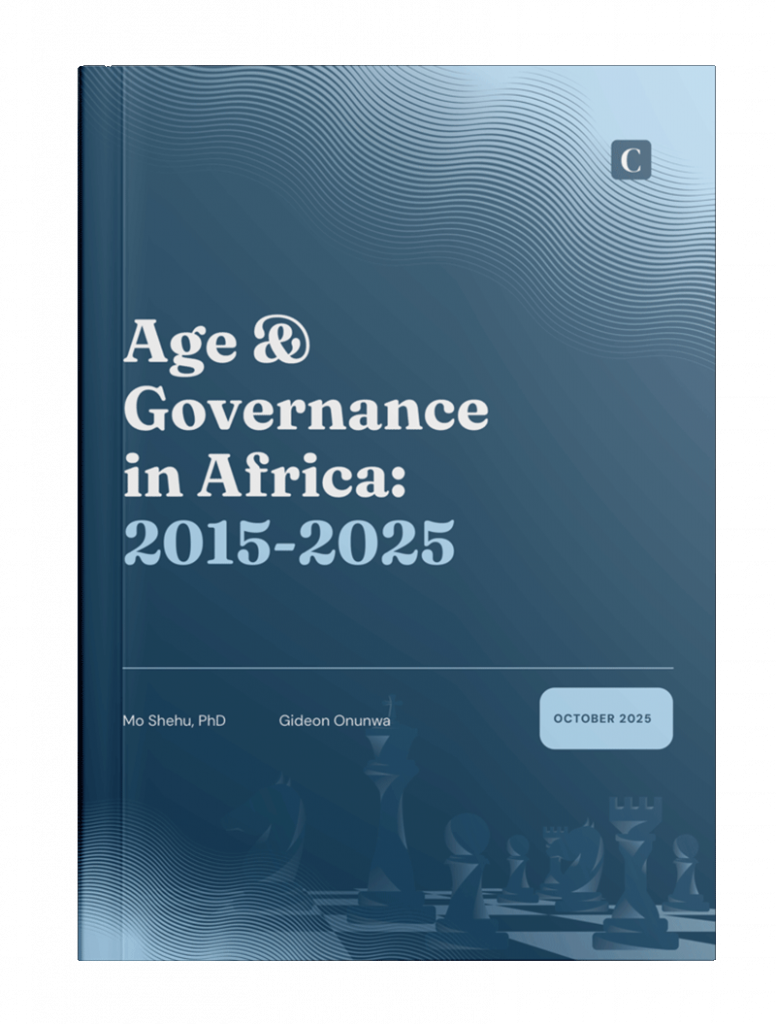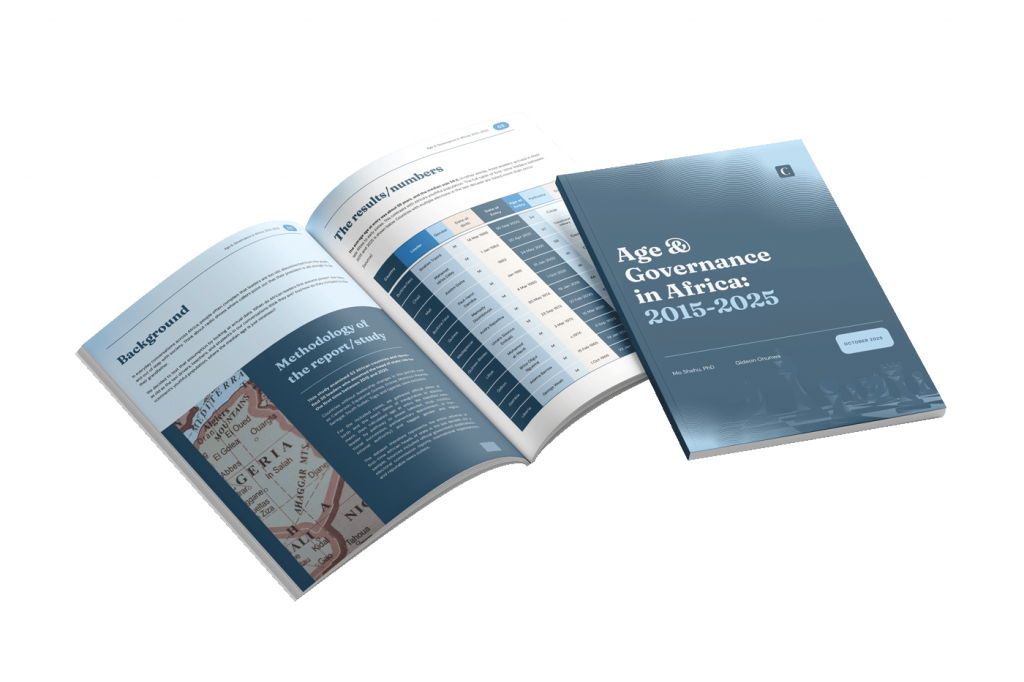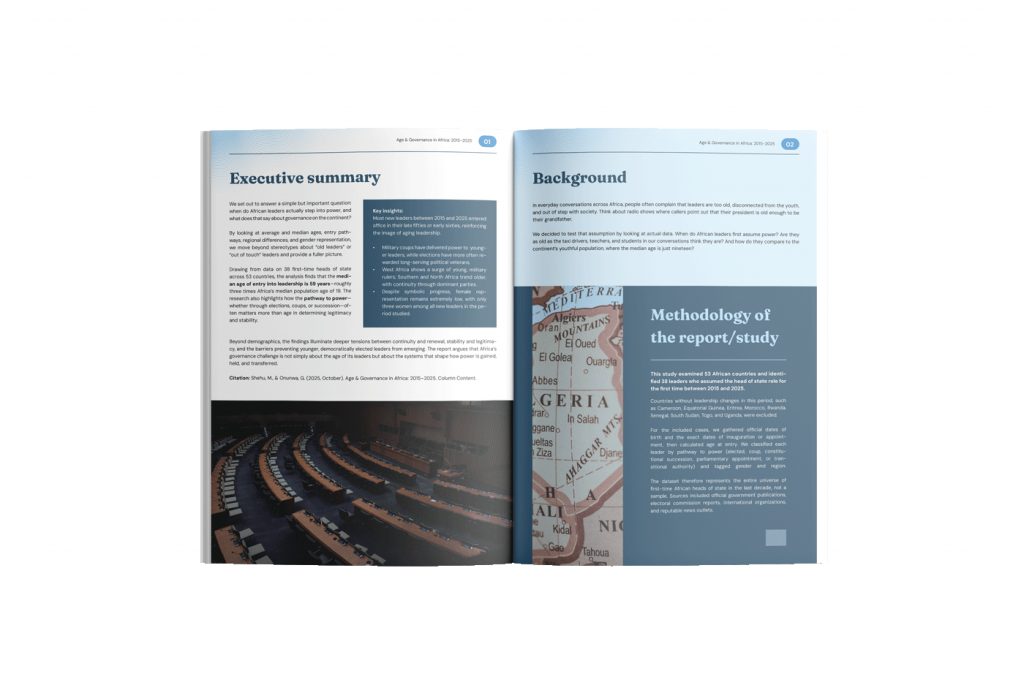REPORT
Age & Governance in Africa: 2015-2025
A decade of leadership change
A 10-year analysis of when and how African leaders come to power — and what that reveals about legitimacy, renewal, and the future of governance.
Shehu, M., & Onunwa, G. (2025). Age & Governance in Africa: 2015-2025. Column Content.

How old are Africa’s leaders, really?
We examined 38 first-time heads of state across 53 countries from 2015 to 2025 to uncover patterns in age, pathways to power, and what they mean for Africa’s political systems.
Inside the report
Age patterns across 38 new African leaders
The ballots-versus-barracks divide explained
Regional contrasts in leadership transitions
Insights on gender and legitimacy
Policy ideas for fostering generational renewal
Key figures and findings
The data behind a decade of leadership change:
- 53 African countries studied
- 38 first-time heads of state
- 59 years average age at entry
- Only 3 women among all new leaders
- Median population age in Africa: 19
Africa’s leadership gap isn’t just about age — it’s about the systems deciding who gets power and how.
Who should read this?
Policy analysts tracking African governance trends
Journalists covering leadership and legitimacy
Youth organizations advocating for representation
Researchers and academics in politics and development
The report offers data and context for anyone rethinking Africa’s leadership story.
This report is for you if you’ve ever asked:
Why are African leaders so much older than their citizens?
Does age determine legitimacy and stability?
Are coups really the only path for younger leaders?
How can systems open space for new generations?





